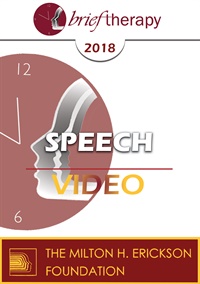Credit available - Click Here for more information
- Average Rating:
- Not yet rated
- Topic Areas:
- Speeches | Relationships | Trauma | Continuing Education | Brief Therapy | Intimacy
- Categories:
- Brief Therapy Conference | Brief Therapy Conference 2018 | Online Continuing Education
- Faculty:
- Laura Brown, PhD
- Course Levels:
- Master Degree or Higher in Health-Related Field
- Duration:
- 1:03:11
- Format:
- Audio and Video
- Original Program Date:
- Dec 08, 2018
- Short Description:
- BT18 Speech 14 - Helping Trauma Survivors to Have the Relationships They Deserve - Laura Brown, PhD Survivors of complex childhood trauma --systemic abuse, neglect, and disrupted attachment schemata -- enter adulthood with internal working models of relationship that often lead them into difficult and painful connections with others. I will address the specific challenges in empowering these survivors to stop "paying the price of admission" to intimacy, and discuss how therapists can find effective strategies for addressing pre-verbal and early verbal core beliefs about self, being lovable, and being safe in relationships.
- Price:
-
Sale is $29.00
price reduced from Base Price - $59.00
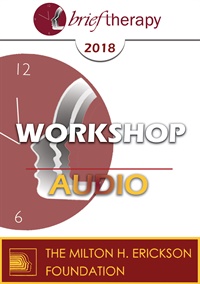
- Average Rating:
- Not yet rated
- Topic Areas:
- Workshops | Multicultural | Trauma | Brief Therapy | Mindfulness
- Categories:
- Brief Therapy Conference | Brief Therapy Conference 2018
- Faculty:
- Laura Brown, PhD
- Duration:
- 1:59:58
- Format:
- Audio Only
- Original Program Date:
- Dec 07, 2018
- Short Description:
- Just as human beings are not generic, so, too, trauma is an event that is affected by and interacts with people's intersectional identities. This workshop will introduce participants to a mindful model for understanding how to move towards cultural competence in practice with trauma survivors. We will pay particular attention to therapist countertransference/fragility, and to the effects of shame, guilt, privilege, and dominant culture narratives on trauma treatment. Some experience working with trauma survivors is assumed.
- Price:
- $15.00 - Base Price
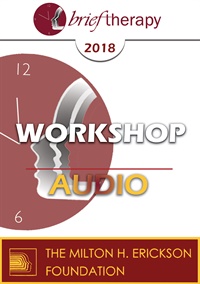
- Average Rating:
- Not yet rated
- Topic Areas:
- Workshops | Brief Therapy | Trauma | Somatic Experiences | Therapeutic Relationship | Pain and Healing
- Categories:
- Brief Therapy Conference | Brief Therapy Conference 2018
- Faculty:
- Janina Fisher, PhD
- Duration:
- 2:05:52
- Format:
- Audio Only
- Original Program Date:
- Dec 07, 2018
- Short Description:
- Traditional models of trauma treatment emphasize a narrative approach centered on the overwhelming events, a very long, slow, painful approach in which clients get worse before they get better. But rather than ‘treat’ the events, neuroscience teaches us how to treat their effects. When trauma symptoms are “decoded” as evidence of how individuals survived, they become comprehensible and treatable. Clients are recruited as active participants in the treatment, are educated to understand trauma-related responses, reassuring them that they are not inadequate or crazy. Best of all, a brief therapy model can be inherently relational while avoiding the 'side effects' of long-term therapeutic relationships.
- Price:
- $15.00 - Base Price
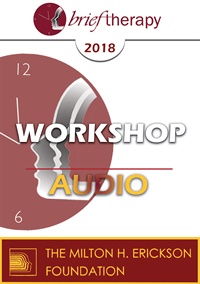
- Average Rating:
- Not yet rated
- Topic Areas:
- Workshops | Brief Therapy | LGBTQ | Multicultural | Trauma
- Categories:
- Brief Therapy Conference | Brief Therapy Conference 2018
- Faculty:
- Rick Miller, MSW
- Duration:
- 1:46:52
- Format:
- Audio Only
- Original Program Date:
- Dec 07, 2018
- Short Description:
- The relationship between gay sons and their mothers is fascinating based on the history of psychiatry pathologizing this bond, suggesting an enmeshment that contributed to the son being gay. Currently, this relationship consists of an empowering bond that contributes to a healthy sense of self in a world where acceptance isn’t necessarily prevalent. The actual key to wellbeing consists of receiving good enough mothering rather than total acceptance of his being gay. This presenter, a gay male author notes that there is little information on this topic, hence the inception Gay Sons and Mothers. This “docuseries” consists of photos and narratives depicting these bonds, video interviews portraying the emotional aspects of their relationships, as well as theory based on interviews and personal experiences.
- Price:
- $15.00 - Base Price
Tags: Gay LGBTQ Multi-Cultural Trauma
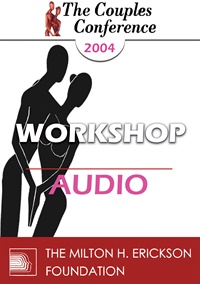
- Average Rating:
- Not yet rated
- Topic Areas:
- Workshops | Affairs | Couples Therapy | Trauma | Infidelity | Relationships | Intimacy
- Categories:
- Couples Conference | Couples Conference 2004
- Faculty:
- Janis Abrahms Spring, PhD, ABPP
- Duration:
- 1:52:35
- Format:
- Audio Only
- Original Program Date:
- Mar 26, 2004
- Short Description:
- Infidelity is not necessarily about sex, but about secrets and the violation of trust. In this workshop, Dr. Spring will map out the trauma of an affair (or other intimate wounds) and help partners think through whether and how to reconcile.
- Price:
- $15.00 - Base Price
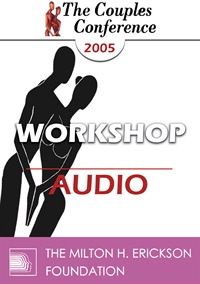
- Average Rating:
- Not yet rated
- Topic Areas:
- Workshops | Affairs | Couples Therapy | Trauma | Infidelity
- Categories:
- Couples Conference | Couples Conference 2005
- Faculty:
- Janis Abrahms Spring, PhD, ABPP
- Duration:
- 1:55:56
- Format:
- Audio Only
- Original Program Date:
- Mar 04, 2005
- Short Description:
- Infidelity is not necessarily about sex, but about secrets and the violation of trust. In this workshop, Dr. Spring will map out the trauma of an affair (or other intimate wounds) and help partners think through whether or not, and how to reconcile.
- Price:
- $15.00 - Base Price
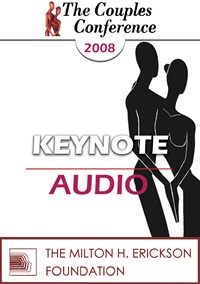
- Average Rating:
- Not yet rated
- Topic Areas:
- Keynotes | Couples Therapy | Trauma | Eye Movement Desensitization and Reprocessing (EMDR) | Hypnosis | Neurobiology
- Categories:
- Couples Conference | Couples Conference 2008
- Faculty:
- Bessel van der Kolk, MD
- Duration:
- 1:05:52
- Format:
- Audio Only
- Original Program Date:
- Apr 25, 2008
- Short Description:
- Starting with a review of recent studies on the neurobiology of trauma, Dr. van der Kolk will examine the utility of approaches from the fields of hypnosis, body oriented therapies and EMDR, both with research data and videotaped clinical interventions. The integration of these approaches during different stages of treatment will be discussed.
- Price:
- $15.00 - Base Price
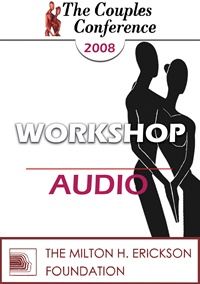
- Average Rating:
- Not yet rated
- Topic Areas:
- Workshops | Trauma | Relationships | Couples Therapy | Neuroscience | Stress
- Categories:
- Couples Conference | Couples Conference 2008
- Faculty:
- Bessel van der Kolk, MD
- Duration:
- 1:38:39
- Format:
- Audio Only
- Original Program Date:
- Apr 25, 2008
- Short Description:
- The majority of people who seek psychiatric care have histories of trauma, chaos or neglect. Advances in the neurosciences, attachment research and in information processing show how brain function is shaped by experience, and that life itself can continually transform perception and biology. Overwhelming experiences alter the capacity for selfregulation and memory processing due to changes in sub-cortical, i.e., “unconscious” levels of the brain.
- Price:
- $15.00 - Base Price
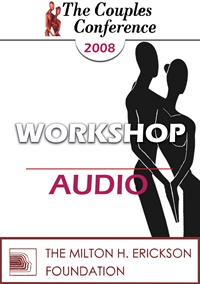
- Average Rating:
- Not yet rated
- Topic Areas:
- Workshops | Couples Therapy | Trauma | Relationships | Treatment Planning | Stress
- Categories:
- Couples Conference | Couples Conference 2008
- Faculty:
- Bessel van der Kolk, MD
- Duration:
- 1:52:49
- Format:
- Audio Only
- Original Program Date:
- Apr 26, 2008
- Short Description:
- Effective treatment of post-traumatic problems needs to include addressing the imprint of trauma on the physical experience of the self as helpless and in danger. Recovery needs to incorporate dealing with defensive efforts that helped ensure survival, incorporate physical experiences that contradict feelings and sensations associated with helplessness and disconnection, as well as an effective way of integrating fragmented memories of trauma. Experiencing physical mastery (as in yoga and specific body based techniques) often is necessary to initiate new ways of perceiving reality and promote new behavior patterns.
- Price:
- $15.00 - Base Price
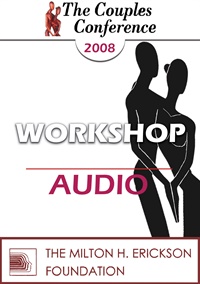
- Average Rating:
- Not yet rated
- Topic Areas:
- Workshops | Emotionally Focused Therapy (EFT) | Trauma | Couples Therapy | Relationships
- Categories:
- Couples Conference | Couples Conference 2008
- Faculty:
- Sue Johnson, EdD
- Duration:
- 2:14:02
- Format:
- Audio Only
- Original Program Date:
- Apr 26, 2008
- Short Description:
- This workshop will offer a theoretical and clinical orientation to the treatment of trauma, personal and relational, in couples therapy. The regulation of emotion and the healing power of attachment events will be emphasized.
- Price:
- $15.00 - Base Price
Please wait ...


